Our collection
Gallica represents the full diversity of the heritage collections of BnF and its 300 partners: 10 million documents - books, newspapers and magazines, as well as manuscripts, maps and plans, prints, photographs, sheet music, videos, sound recordings and objects - can be consulted freely on the web. Gallica offers features that enable detailed discovery of collections such as antique globes - some of which are digitized in 3D - medieval manuscripts, costumes and prints, which are rarely taken out of storage. Thousands of copyright free vintage press titles, very fragile, are available for all. Every day, hundreds of documents are added to the digital library.
View Gallica's collection
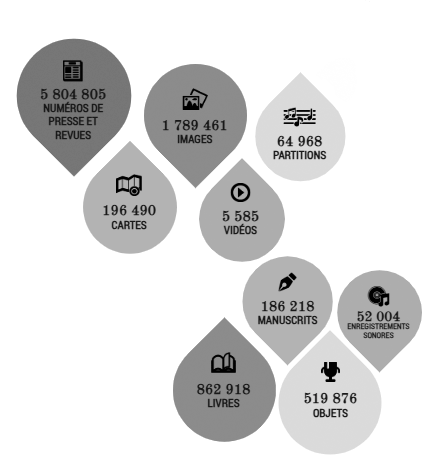
Digitization policy
Initiated in 1992, the digitization of the collections of the Bibliothèque nationale de France has followed a documentary policy first linked to the collections, to the needs of Internet users and readers, but also, to the evolution of technologies. After building up the “library of the honest man” at the turn of the millennium, the BnF has been able to consider, step by step, the treatment of collections often very delicate to digitize. The press, first of all, starting in 2009 with ten emblematic titles from the national daily press, then the specialized collections which, from manuscripts to objects such as coins, present such a diversity that the documentary policy can be summed up in these two major principles: offering a documentary collection based upon humanist values and on the richness of the Heritage collections preserved by the establishment. Major programs, such as the treatment of classic French authors’ entire works, have also been supplemented by the digitization of documents most in demand by readers, proof of their solid interest.
All the works preserved at the BnF, from all eras, are processed on a daily basis, and with developments in digitization methods we are looking forward to new contributions in the case of the most difficult works to digitize, particularly the most fragile.
The BnF's digitization policy also has a partnership part, guided not only by the aim of ensuring optimum complementarity between the digitization of the BnF’s collections and those of its partners, but also by the goal of representing equally the major fields of knowledge.
Since the 2000s, BnF's digital cooperation has been organized around thematic programs at national level. The first of its kind, the “programme de numérisation et valorisation concertées en sciences juridiques” (2008) (Legal science digitization and promotion program) , was followed by projects devoted to art history, children's literature, equestrian heritage and, more recently, to sport history.
Collection research and development
API : Application Programming Interface
Beside single downloads, Gallica APIs (Application Programming Interfaces) make it possible to reuse documentary collections. The BnF API and Datasets portal describes and documents all these APIs, which can be used to query and retrieve metadata from BnF catalogs and digitized collections (notably BnF catalogue general (Main Catalog), data.bnf.fr and Gallica). To ease access and use the data, prepared datasets (images and text, metadata, statistics, etc.) can also be downloaded via this portal.
BnF DataLab
The BnF DataLab is a service built for researchers wishing to work on the BnF's digital collections, in particular Gallica’s digitized collection. These collections constitute a huge supply of data which may be difficult to apprehend. To support researchers, a partnership agreement has been signed with the Huma-Num research infrastructure.
The aim is to pool and share the skills and know-how of all the research teams (Huma-Num engineers and permanent researchers, guest researchers, as well as the BnF’s staff, etc.) to offer researchers working on digital collections some tools, environments and support adapted to the various stages of their digital projects (corpus creation, processing and analysis, enhancement, data preservation, etc.). The BnF DataLab is located in room X, in the research library.
Artificial intelligence
For several decades now, the BnF has been committed to computerizing and dematerializing part of its collections and services. As such, the BnF is involved in numerous projects using artificial intelligence (AI) technologies, and is evolving its scientific policy to fully integrate them.
Although this has already begun in certain sectors of the Library (e.g. OCR applied to printed documents available in Gallica), the gradual deployment of AI in its various fields of activity will require changes in tasks and trades over the coming years, as formalized in the BnF’s AI guidelines and implemented by BnF's AI Unit.
Gallica Images
Gallica Images is an innovative project that uses state-of-the-art technologies to retrieve and index still images from Gallica and the BnF collections, making them accessible to the public.
A significant number of documents digitized in Gallica are prints, engravings and photographs. These images are testimonies of our history, and in most cases are copyright free and can be reused.
To process over 1.4 million views, the Gallica team has developed an artificial intelligence tool using, automatic segmentation and indexing processes. These models have been trained and tested on several datasets to build up a state-of-the-art technological base. Soon anyone will be able to discover our collections and carry out advanced queries with this the help of this tool.
This project is being carried out in collaboration with the INHA (French National Institute for Art History) and the BNUS (Strasbourg's National University Library). This program is supported by the French government as part of the “Digitization of heritage and architecture” program of the France 2030, creative industries initiative field (ICC), operated by the Caisse des Dépôts.
Partnerships and projects around the collection
« Adopt a book »
The “Adopt a Book” initiative, led by the Association des Amis de la BnF (AABnF), was created in order to contribute to the development of Gallica’s digital library. The AABnF, founded in 1913, and recognized as non-profit organization in 1927, is chaired by Olivier Sichel. It gathers sponsors to enrich the collections of the BnF, to contribute to their access and propomotion to the widest possible audience.
Anyone can contribute to the digitization of the BnF's collections, by choosing a book one would like to adopt from the BnF’s general catalog. Your donation will enable the book to be digitized, and is tax-deductible up to 66%, in accordance with current French tax legislation. Furthermore, Gallica will keep a record of one’s generosity with a personalized note next to the digitized book.
In partnership with the BnF's Audiovisual Department, the Association des Amis de la BnF is launching a sponsorship operation to help digitize the precious sound recordings kept at the Library, so that they can be broadcast on the Library's website. In exchange for a contribution of 50 Euros, the sponsor will receive a token appreciation and recognition from Internet users, allowing them to listen to these very rare voices on Gallica. Each recording will remain in the donor's memory for a period of three years. Donations to the AaBnF are 60% tax-deductible.
Digitizing out-of-print books
Law no. 2012-287, promulgated on March 1, 2012, establishes the legal conditions for the digital exploitation of out-of-print books from the 20th century, making the digitization of these books possible. This law entrusts the Bibliothèque nationale de France with the responsibility of creating and maintaining an online public database of unavailable books from the 20th century, accessible free of charge. This database, called ReLIRE, le Registre des Livres Indisponibles en Réédition Électronique (Register of Unavailable Books for Electronic Republication), is enriched once a year with a new list of titles.
The law applies to works that:
are still under copyright ;
were published in France between January 1, 1901 and December 31, 2000 ;
are no longer commercially distributed or published neither in print nor digital form.
The ReLIRE register is used to organize the entry of books into collective management as follows:
a new list of titles is published every March 21 (in 2015, on the 23rd): between two annual publications, no titles are added;
the list is drawn up by a scientific committee, with equal representation of authors and publishers, alongside the BnF;
each unavailable book is associated with data from the BnF’s bibliographic databases.
As the main information tool for authors, rights holders and publishers, ReLIRE enables rights holders to check whether their book is on the list and exercise their right to object to entry into approved collective management.
The implementation of collective management is entrusted to a joint management organization, named “Sofia”, gathering representatives of authors and publishers, which exercise digital rights on behalf of authors or their rights-holders and publishers.
Sofia's first step, once collective management is acted, is to offer the original publisher, if still in business and still holds the exploitation rights for the printed book, an exclusive 10-year authorization for digital exploitation, subject to an automatic renewal. If the publisher accepts this 10-year exclusive license, he is obliged to exploit the work in digital form within 3 years.
Sofia ensures :
to issue 5-year non-exclusive licenses to publishers who request them, if the proposal for a 10-year exclusive license has not been accepted by the original publisher;
to compensate authors (or their rights-holders) when works under collective management are digitally exploited by the original publisher, and to compensate authors (their rights-holders) and publishers when works under collective management are digitally exploited by a publisher other than the original publisher;
to consider requests for withdrawal from collective management submitted after September 20 (September 22 in 2015), and notify the BnF and publishers holding the 5-year non-exclusive licenses of the work's withdrawal from collective management.
The ReLIRE system includes a cultural heritage component that involves the digitization of the BnF collections as part of the legal deposit process. Digitization takes place within the BnF. The files created in image mode ensure the preservation of the collections. FeniXX converts these image files into digital books (EPUB or PDF).
Once digitized, the books are made available to the public through the network of online bookstores and libraries.
The digitized books can be consulted in their entirety in Gallica Intramuros, from your own computer or on those provided in the reading and research rooms.
Gallica offers partial browsing, followed by full consultation as books enter the public domain.
The Art of reading in the Middle Ages
The project "The Art of Reading in the Middle Ages - ARMA", coordinated by the National and University Library of Slovenia (NUK), aims to highlight the role of reading practices in the Middle Ages in the construction of European identity through objects and medieval manuscripts in Latin script in various European languages.
The consortium consists of eight partners: the National and University Library of Slovenia (NUK), the Bibliothèque nationale de France (BNF), the National Library of the Czech Republic (NKP), the Staatsbibliothek zu Berlin (SBB), the Hunt Museum (Ireland), the University Library of Leiden (The Netherlands), the Europeana Foundation, and the Public Library of Bruges (Belgium).
The BnF, which has a budget of €97,624 for this project, 75% of which is co-financed by European funds, is involved in several ways:
the digitization of 60 European medieval manuscripts
making digital reproductions of European medieval manuscripts, incunabula and objects (coins) available on the Europeana platform
enriching the metadata of these collections to facilitate access and visibility on the Europeana platform
contributing to the editorial and promotional activities of the collections (blog articles, educational tutorials for students and schools, contribution to a European virtual exhibition).
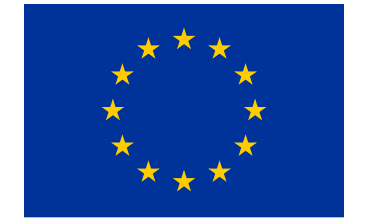 The ARMA project has a total budget of €699,539, co-funded by the European Union's Connecting Europe Facility program (grant agreement INEA/CEF/ICT/A2019/2072436) for a period from October 2020 to July 2022.
The ARMA project has a total budget of €699,539, co-funded by the European Union's Connecting Europe Facility program (grant agreement INEA/CEF/ICT/A2019/2072436) for a period from October 2020 to July 2022.
ALFA Alfonsine Astronomy
ALFA is an ERC funded research project (ERC CoG, 723085) dedicated to the study of Alfonsine astronomy that flourished in Europe from the second half of 13th century to the middle of the 16th century.
Alfonsine astronomy is arguably among the first European scientific achievements. There is however little detailed historical analysis encompassing its development in its full breadth. ALFA addresses this issue by studying tables, instruments, mathematical and theoretical texts in a methodologically innovative way relying on approaches from the history of manuscript cultures, history of mathematics, and history of astronomy.
As part of this endeavour ALFA is bringing more manuscripts, authors and works to the attention of scholarship. Collaboration with patrimonial libraries like the Bibliothèque nationale de France is essential in this respect.
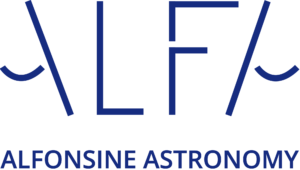
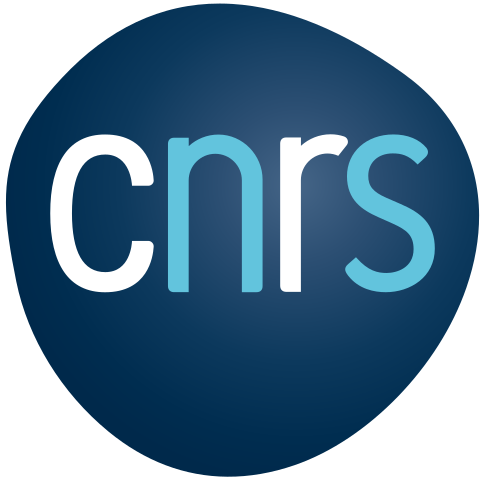
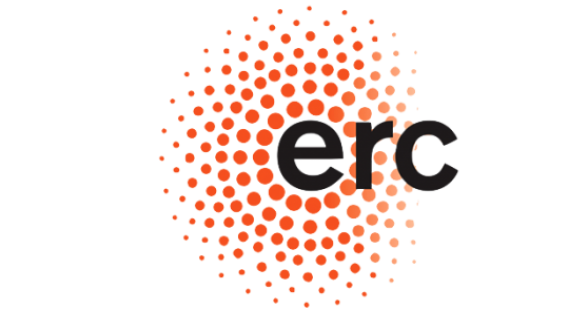

3D digitizing of globes
The BnF's Maps and Plans Department holds one of the world's largest collections of antique terrestrial and celestial globes, comprising more than 200 pieces dating from the 11th to the 19th centuries. The 3D digitization of 55 of the most valuable globes in this collection was carried out in 2014 and 2015 in Paris at the BnF's premises, thanks to the technical support of the Japanese company Dai Nippon Printing Co., Ltd. and under the patronage of the Total Corporate Foundation.
This major operation is a world premiere for such a large collection of globes.
![]()
![]()
France-England 700-1200
England and France Project 700-1200: Medieval Manuscripts from the Bibliothèque nationale de France and the British Library, a program of the Polonsky Foundation
Under the patronage of the Polonsky Foundation, the Bibliothèque nationale de France and the British Library have for the first time engaged in a partnership to digitize, scientifically catalog and promote a remarkable collection of 800 medieval illuminated manuscripts from the 8th to the 13th centuries preserved in equal parts by the two institutions. These manuscripts are freely accessible on Gallica and Digitized Manuscripts, the digital libraries of the two institutions, since the end of 2018.
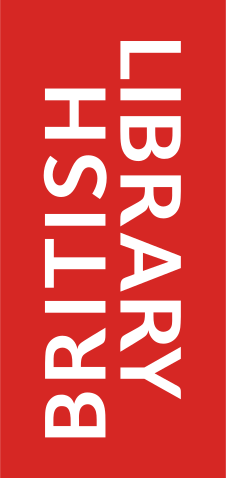

Rétro News et BnF collections sonores
As part of its press digitization policy, the Bibliothèque nationale de France, through its branch BnF-Partenariats, launched the RetroNews service in 2016.
RetroNews offers free access to more than 1,000 press titles published between 1631 and 1950. The press archives come either from the collections available in Gallica or from collections digitized by BnF-Partenariats. In all cases, the newspapers are indexed in Gallica: if a result is returned by Gallica's search engine, the full issue can be viewed, free of charge, on RetroNews.
RetroNews also offers advanced search tools specific to press collections, as well as additional editorial content (articles, long format documentary, video, audio, etc.) to help you discover history through the press. Subscription is needed to access these additional services.

